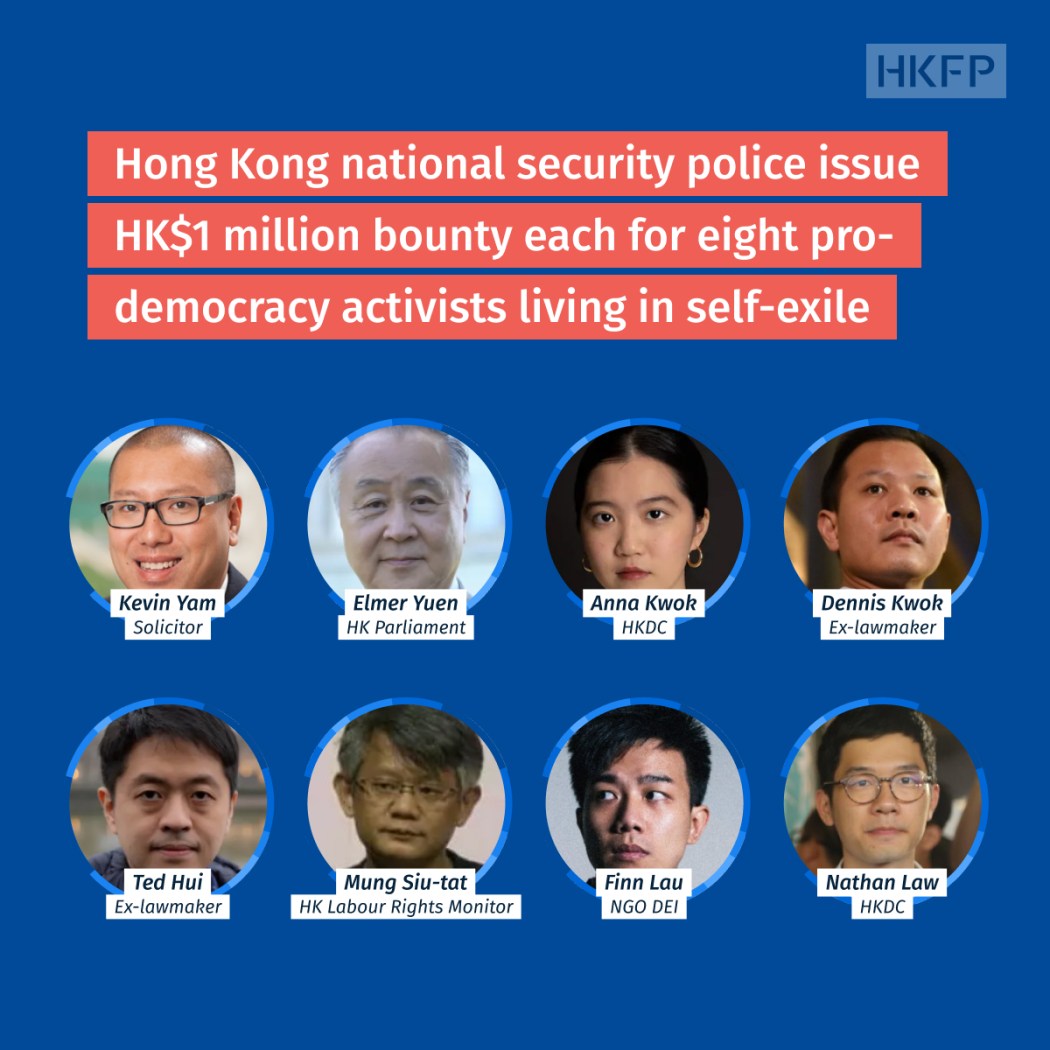Hongkongers should see the “true colours” of the eight wanted democrats, security chief Chris Tang has said, adding that one of them – activist Nathan Law – was a “modern-day Chinese traitor” and a cowardly “turtle hiding inside its shell.”
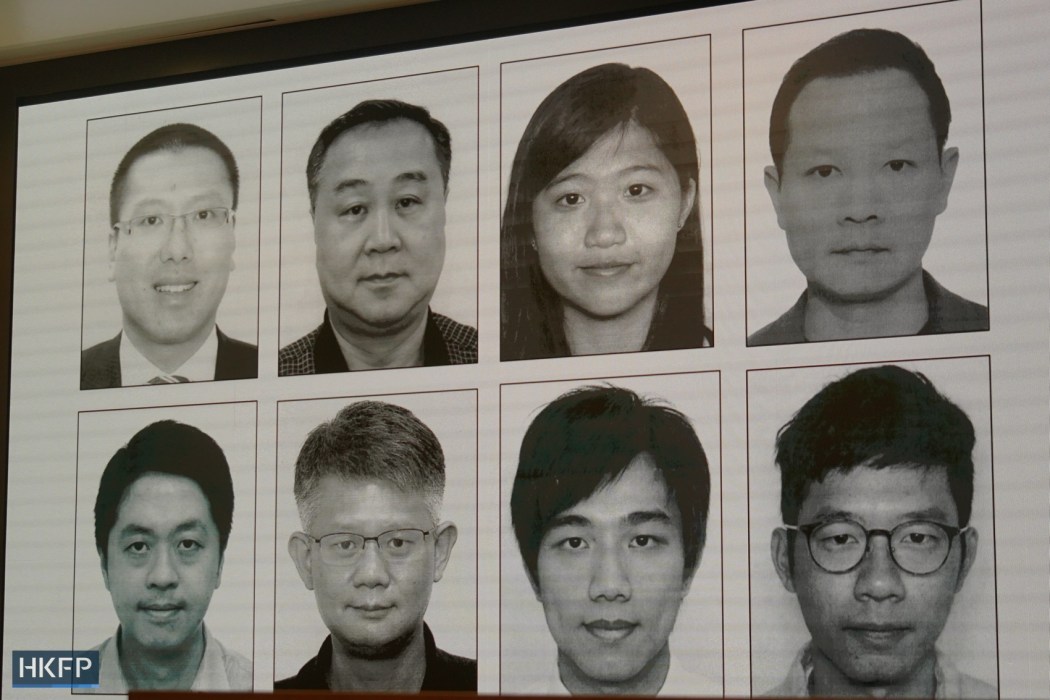
The remarks came after the Hong Kong national security police issued arrest warrants on Monday to eight self-exiled activists who now reside overseas. The police accused them of violating the national security law and offered a HK$1 million bounty on each of them.
Besides Law, the wanted democrats include ex-lawmakers Ted Hui and Dennis Kwok; activists Anna Kwok, Elmer Yuen, Mung Siu-tat and Finn Lau; and solicitor Kevin Yam.
Speaking to reporters on Tuesday, Tang said the police “would spend a lifetime’s endeavour to catch the wanted.”
“Beyond issuing arrest warrants to those eight people, [the authorities also want] to cut off their funding, including [moves to] freeze, restrict, and seize their assets,” he added.
The security chief also said that the force would try to find out the suspects’ “contacts, allies and [people] funding them behind the scenes.”

“Anyone who assists, incites or funds those people to endanger national security in Hong Kong and [mainland China] may breach the law, ” Tang said.
He added: “I want to tell all Hongkongers: you must see the true colours of these suspects. They want to endanger national security… you must not let them incite you, and you must not help, abet or give them financial support.”
‘Chinese traitor’
Western countries and the activists themselves have condemned the arrest warrants, calling them an attack on rights and freedoms.
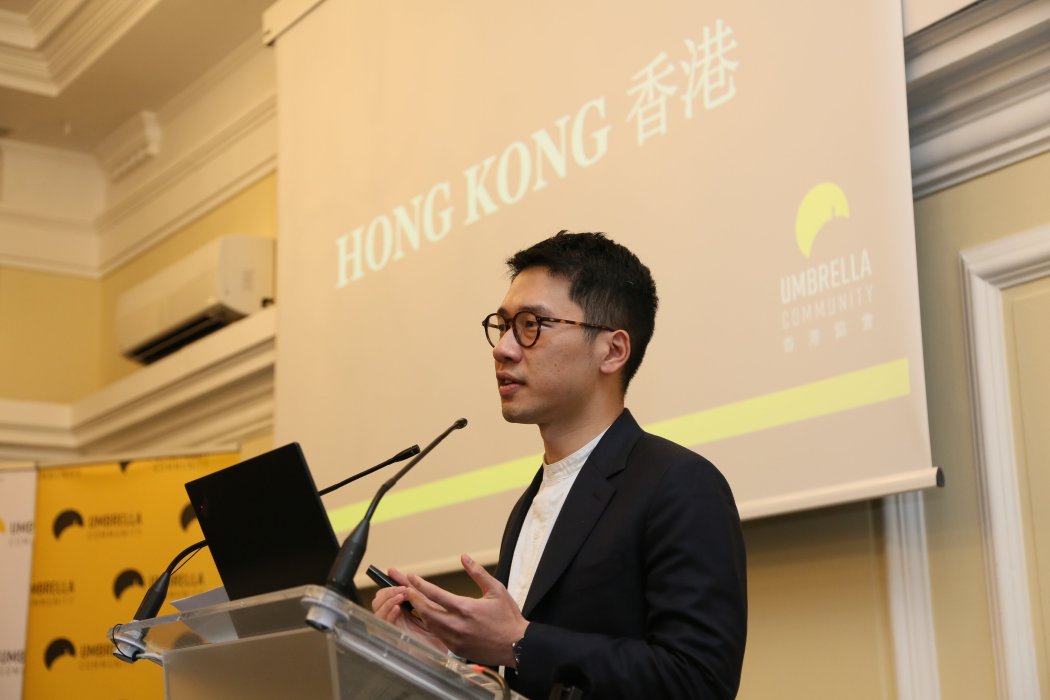
In a statement published on social media on Monday, Law said he had been granted asylum in the UK two years ago and that he would not return to his home city to surrender. He said all he did was take part in “peaceful advocacy that was reasonable and just.”
“In civilized countries, the right to peaceful political advocacy should be protected,” Law added.
In response, Tang told reporters that Law was a “modern-day hanjian,” a term meaning “Chinese traitor” that is often used by nationalists against those deemed critical of the state.
He also accused Law of taking part in “evil acts” including calling for sanctions against Hong Kong judges and undermining the city’s status as an international financial centre.
“His behaviour is like [that of] a turtle hiding inside its shell, living off the blood and sweat of others,” Tang said, claiming that Law “enjoys wealth and prestige overseas, while the teenagers in Hong Kong who were incited had to suffer consequences under the law.”
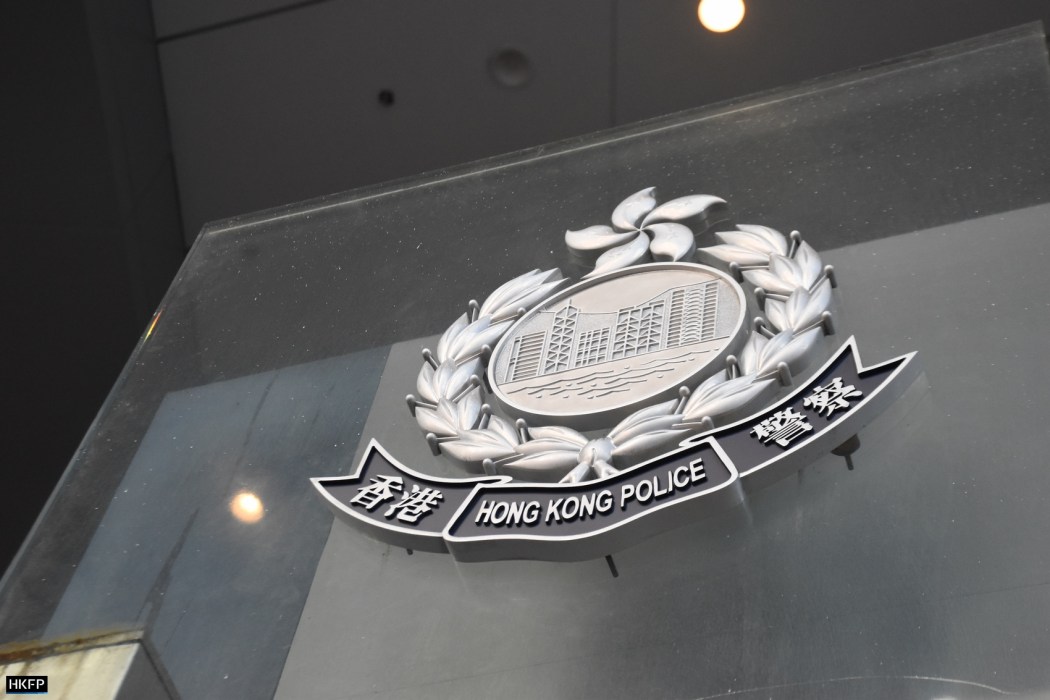
Tang added that he hoped Law could “gather [his] courage, dignity and conscience and return to Hong Kong to surrender.”
Law responded on Facebook Tuesday night, saying he was not a coward. Rather, he said he will keep “speaking up for the democratic movement on international platforms.”
Law was a founding member of the defunct pro-democracy party Demosisto. He fled Hong Kong to the UK in July 2020.
Interpol response
Tang did not reply to the questions about whether the police would seek assistance from the International Criminal Police Organization (Interpol) to help arrest the activists overseas.
Interpol told HKFP on Tuesday that no requests for a Red Notice or Wanted Persons Diffusion for the eight activists had been received.

The global policing group also said that it is strictly forbidden from undertaking any intervention or activities of a political, military, religious or racial character, and its activities should be conducted in the spirit of the Universal Declaration of Human Rights: “Interpol does not issue arrest warrants nor can it compel any of its 195 member countries to arrest or extradite an individual, ” a spokesperson said.
They added that “a member country can request Interpol to issue a Red Notice for an individual who is subject of a valid national arrest warrant.” However, a Red Notice is not an international warrant.
Chief superintendent of the national security police Steve Li said on Monday that the Force would not be able to arrest the wanted individuals if they did not return to the city.
Executive Councillor and Senior Counsel Ronny Tong told HKFP that according to the United Nations’ principles and Hong Kong’s legal system, extradition agreements did not apply to those suspected of political crimes.
“If we seek support from Interpol, that would just help with exchanging information and evidence. But Interpol would not help arrest the wanted suspects [overseas] and transfer them to Hong Kong, ” Tong said.
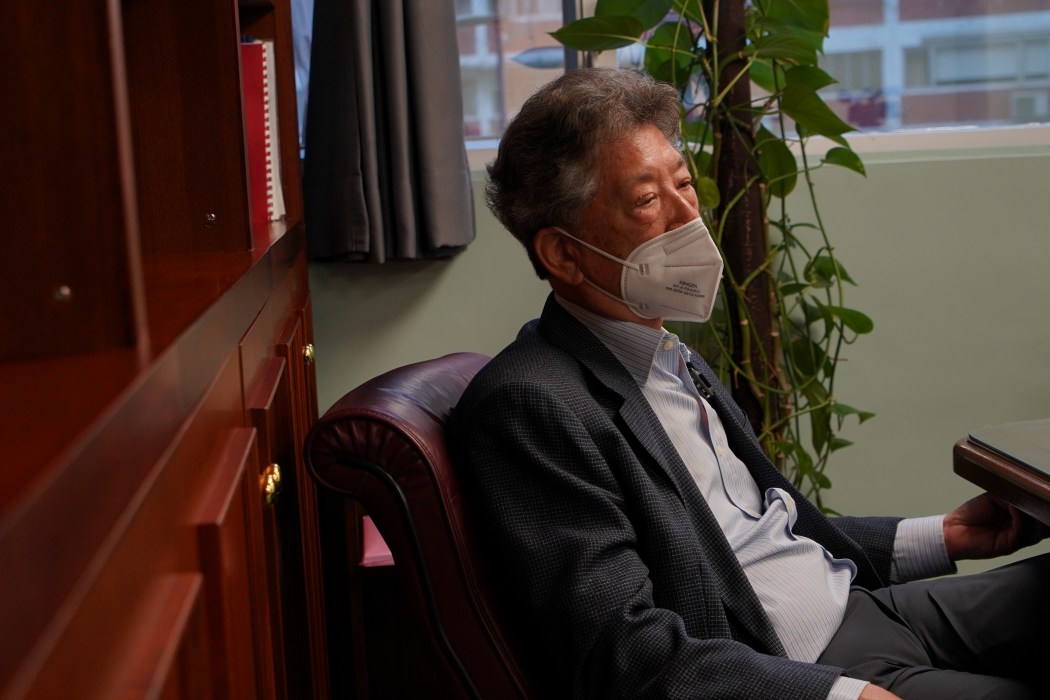
Regarding Tang calling Law a “hanjian” who had engaged in “evil acts”, Ronny said he respected Tang’s right to free speech, and that he had this right “like everybody else.”
Interpol has not responded to HKFP’s requests for comment.
In June 2020, Beijing inserted national security legislation directly into Hong Kong’s mini-constitution – bypassing the local legislature – following a year of pro-democracy protests and unrest. It criminalised subversion, secession, collusion with foreign forces and terrorist acts, which were broadly defined to include disruption to transport and other infrastructure. The move gave police sweeping new powers, alarming democrats, civil society groups and trade partners, as such laws have been used broadly to silence and punish dissidents in China. However, the authorities say it has restored stability and peace to the city.
Support HKFP | Policies & Ethics | Error/typo? | Contact Us | Newsletter | Transparency & Annual Report | Apps
Help safeguard press freedom & keep HKFP free for all readers by supporting our team


